Blind, but not hopeless
Females cherish opportunity to play futsal, optimistic of future opportunities
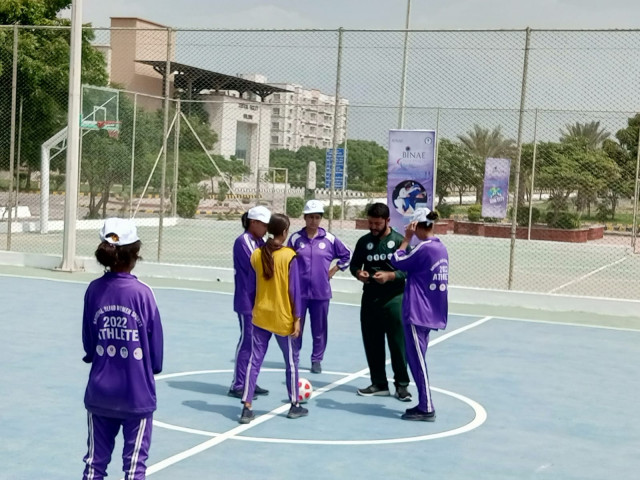
“I am just very upset that we didn’t win,” said Naureen, while sobbing as the futsal match between the two teams of blind players ended. For the 17-year-old Lahore-based athlete, this was her first taste of playing futsal, and she felt that her disability cannot stop her from improving.
The Pakistan Blind Sports Federation (PBSF) had collaborated with Binai Education Foundation, founded and ran by former cricketer Salman Elahi, who represented Pakistan in the 2002 Blind Cricket world Cup. They organized the country’s first blind women’s sports event back in September, while Diya FC assisted the players in the field and taught them how to play the game.
However, the girls have come a long way since then, according to PBSF President Taalish Hussain, who is also dealing with a disability and understands what it feels like to gradually lose sight. The girls are also following the FIFA World Cup. They follow the matches and the score while around five players from all over the country are preparing to take their skills to the next level as they hope to play for the national football team for blind women.
“The FIFA World Cup has been very popular with the girls and they are serious about playing football. In fact, they want to improve quickly which is unrealistic, but they will get there,” Hussain told The Express Tribune. “We will make the national team for women as well in the future and the idea is to train them enough and help them get better at the sport first. On the other hand the boys have a better understanding of the game because they get to play more compared to the girls.
“For example, in Gujranwala, where we are based, there is a hostel for boys and they get to train for football at the new stadium right next to our hostel there. But for girls, there are barriers. Like the need for safe spaces as they cannot be left in hostels like that. But besides football, we at the federation cover all the sports from archery to martial arts etc.”
But playing futsal and football is not easy. For one, there are not enough facilities to support blind athletes in their quest to master a sport, whereas sports equipment is required for them to compete in the event.
“You see this football? It has been made especially for the blind athletes and it has the material in it that makes sound so that the player can follow it, but this ball is not cheap, and it took us a lot of time to get this made for us,” explained Hussain.
On the pitch each team has five players, but the goalkeeper can get the assistance of a person with vision who can guide them verbally, as to where they should go when the opposition attacks.
But it is the cement floor on which the girls were playing at the DHA City Karachi, and mostly that is not the safest surface to help the players.
“The blind futsal pitch needs a protective soft wall on all the sides so that the players do not get injured. We still need venues that can have these specifications for the players to continue to play,” said Diya FC founder Sadia Sheikh.
But national football player Ashmunnain Muhammad Amin said that the blind athletes especially girls were being supported.
“I was proud to be a part of it because the differently abled people deserve a good and normal life. I hope to see these girls play in international events too. I hope there are more events on the international level for the blind footballers. They have the right to be successful in life and to take part in sports, or anything they want to pursue. So organising these events will encourage them to move forward with their goals.”
Players Umaima Mutahir, Mahnoor, Mehakand Ashmunnain were assisting the teams.
“This was our first experience with the blind girls, and we thought it was challenging, as to how these blind girls will play football. We learned that there are different rules, the size of the ball is different, the ball is made differently, so it has been an enlightening experience for us,” said Ashmunnain.
Voicing Ahsmunnain’s views Naureen, who was visiting Karachi with her mother and sister, said that futsal has been a challenging sport for her, but it is a game that she enjoyed despite losing on penalty kicks.
“This is the first time, but I know it is not my last,” said Naureen.
However, at the end of the day the hope is to normalise sports for blind athletes and Hussainadds that the most challenging aspect is to get people to take blind athletes seriously.
Meanwhile, Elahi feels that sports is a way to bring people with disabilities in the mainstream and they are an asset to society and the country.


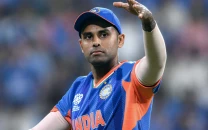
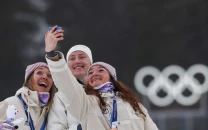
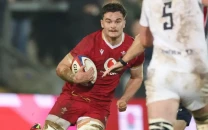
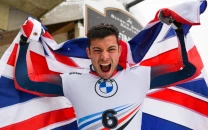
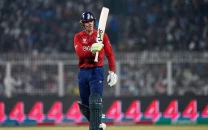












COMMENTS
Comments are moderated and generally will be posted if they are on-topic and not abusive.
For more information, please see our Comments FAQ